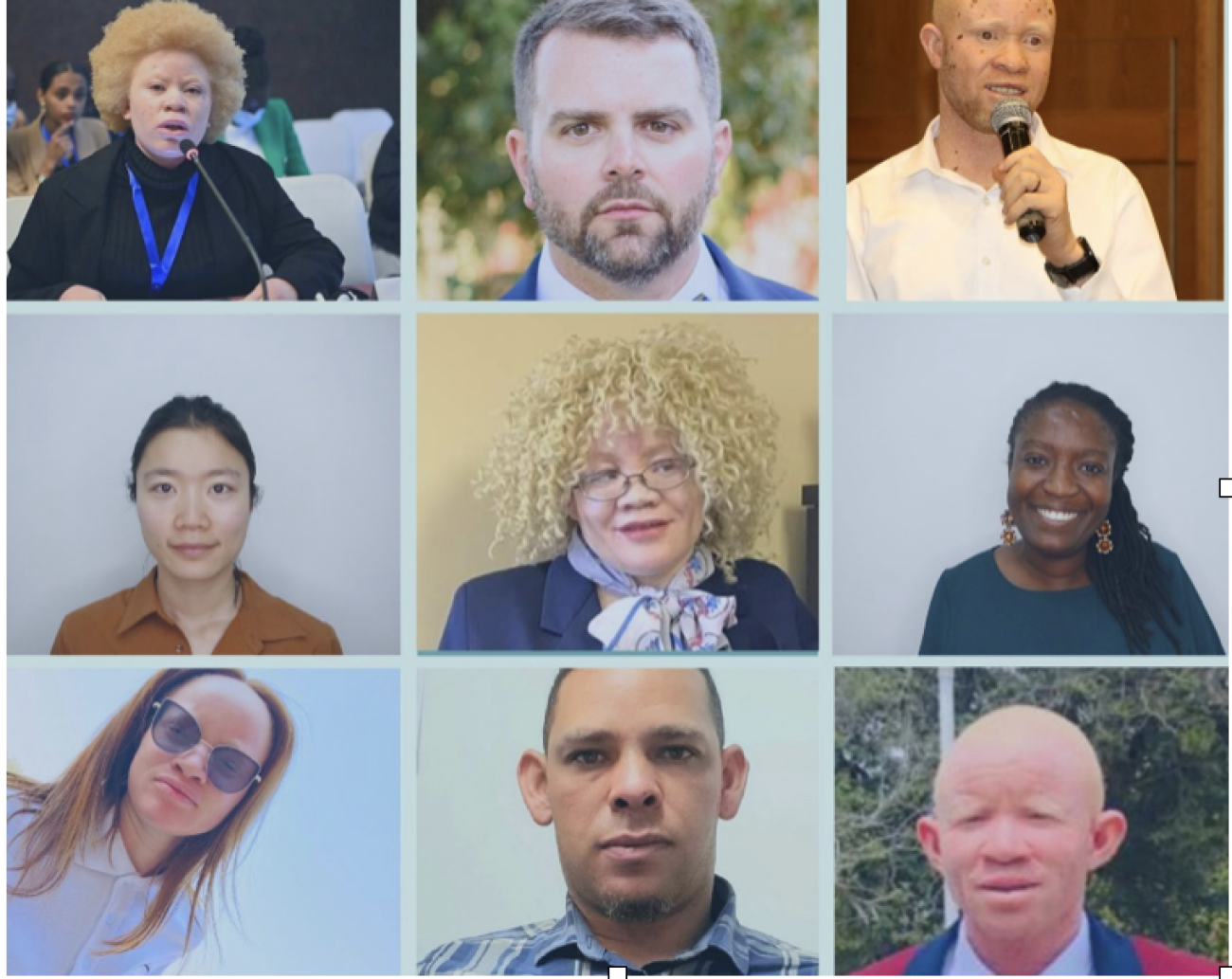Albinism is part of human diversity

Albinism is part of human diversity
The growing demand for equal enjoyment of fundamental human rights and appropriate accommodation for persons with albinism is an ongoing issue that cannot be ignored. Persons with albinism face unique challenges and discrimination, from social stigma, marginalization, and exclusion, which hinder their ability to fully participate in society and exercise their human rights.
To address this issue, it is essential to recognize and respect the inherent worth and dignity of all individuals, regardless of their physical characteristics. This includes acknowledging the rights of persons with albinism to education, employment, healthcare, and social inclusion. It also requires challenging harmful stereotypes, stigma and promoting positive representations of albinism conditions in media and society at large.
To realize this for Namibia, UNESCO with the support of the African Albinism Network (AAN), Ministry of Gender Equality, Poverty Eradication and Social Welfare and The Ombudsman’s Office, convened 60 participants for a stakeholder engagement and learning forum on the development of a National Action Plan for persons with albinism in Windhoek from 7th to 10th November 2023, under the theme ‘Ensuring Equality, Access to All Services, Dignity and Respect for Persons with Albinism’. The event was attended by Ms. Hopolang Phororo, United Nations Resident Coordinator in Namibia, Hon. Alexia Turimei Manombe-Ncube, Deputy Minister of Disability Affairs, Mr. Basilius Dyakugha, the Ombudsman, along with Hon. Isaac Maigua Mwaura, Government Spokesperson and the Chairperson of Albinism Society of Kenya, Mr. Bonface Massah, Human Rights Commissioner and the Executive Director of Standing Voice in Malawi, as well as AAN representatives from Tanzania and Ghana.
The main objective of the four-day forum was to learn from best practices in other African countries, raise awareness about the challenges and discrimination faced by persons with albinism, assess the status of the albinism movement in Namibia, engage duty bearers, development partners, and human rights groups to strengthen national and regional partnerships and explore the potential adaptation of the African Union (AU) plan of action to the Namibian context. The national theme for 2023 also resonates with the four pillars outlined in the AU Plan of Action: prevention, protection, accountability, and equality and non-discrimination, to foster understanding and empathy among both affected individuals and the wider public.
Human Rights Commissioner from Malawi, Mr. Bonface Massah underpinned that across Africa the national human rights frameworks are not all-inclusive on the specific needs of persons with albinism in the broader disability discourse to address the current ongoing human rights violations. Therefore, mechanisms such as a National Action Plan will put in place specific measures for inclusive laws, and access to justice as well as address the intersectionality of gender disparities and dynamics as it relates to human rights violations to safeguard persons with albinism.
Following the success of the launch of the report on the Public Hearings on Discrimination and Other Challenges Faced by People with Albinism in Namibia and its submission to parliament, The Ombudsman’s Office affirmed its commitment to assist with drafting the national action plan and appeal for the timely implementation of proactive measures to ensure that persons with albinism have equal enjoyment of their fundamental human rights and can be accommodated in appreciation of human diversity.
This year holds special significance as it marks the 10-year anniversary of the historic adoption of the first-ever United Nations Human Rights Council resolution on albinism, dated June 13, 2013. This resolution denounced attacks against people with albinism in Africa and urged affected Member States to take concrete steps to end this situation. This momentum paved the way for the creation of the Independent Expert on the Enjoyment of Human Rights by Persons with Albinism by the UN Human Rights Council. Ms. Ikponwosa (IK) Ero was appointed as the first Independent Expert and played a pivotal role in developing the groundbreaking regional action plan, which eventually led to the current AU Plan of Action to End Attacks and Other Human Rights Violations Targeting Persons with Albinism in Africa (Plan of Action 2021-2031).
Noting the above, continued public engagement and awareness raising is required to mitigate the deepening lack of understanding and prejudice that disadvantage people with albinism. UNESCO and other UN agencies in Namibia will support the government to establish a drafting committee for the National Action Plan and advocate for its adoption.
|
“ There is much support that people with albinism need that society tend to overlook such as care, love, respect and humanity.” - Seblon Tutaleni Shikuni |
|
|
“I feel like having albinism has made me a stronger person. I know I am capable of doing anything I set out to do. As we speak am now a qualified teacher, who holds an Honors Degree in Education. I currently work for a primary school in Omusati region.” – Hilma Paulus |
|
|
“Having albinism has shaped me to be strong because I am different. In every room I step in, I always expect something negative to happen, so I always play scenarios in my head to prepare myself on how I would respond in that event” - Rozaline Joseph |
|
|
“I have experienced that different communities have different understanding about people living with albinism. Some believe that people with albinism cannot study or work, which is not the case” – Henock N. Shaama |





